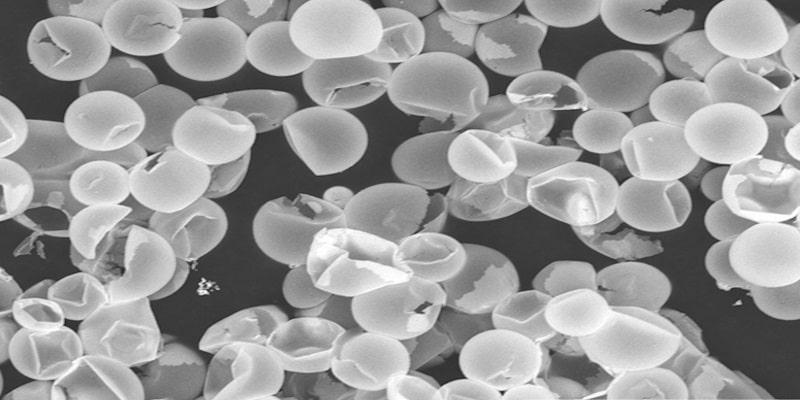Sustainable Coatings and Encapsulation - Fundamentals of Films and Microcapsules - New Course Under Development

- Start date: 14 September 2026
- End date: 17 September 2026
- Duration: 3.5 days – flexible attendance: Days 1–2, Days 2–4, or full course
- Fees: £TBC
- Venue: Faculty of Engineering and Physical Sciences, University of Leeds
enquire
About the course
Sustainable Coatings and Encapsulation: Fundamentals of Films and Microcapsules is a proposed continuation and expansion of the highly successful Microencapsulation short course delivered between 2012 and 2023.
This updated course provides a strong foundation in coating and encapsulation science and technology, with a clear and timely emphasis on the development of more sustainable solutions across these application areas. Participants will gain both fundamental understanding and practical insight into how sustainability considerations are shaping current and future practice.
The course features expert-led presentations from leading professionals in industry and academia, complemented by practical laboratory demonstrations. Delivered over 3.5 days, the course is structured into three parts, with the second day dedicated to sustainability themes that act as a bridge between the coatings/films and encapsulation topics.
To accommodate different interests and professional needs, participants may choose from the following attendance options:
– Days 1–2: For those primarily interested in coatings and films
– Days 2–4: For those primarily interested in encapsulation
– Full course: For participants wishing to engage with the complete programme
Depending on which days are attended, delegates will:
-
Understand the scientific and engineering principles underpinning the development of coatings and/or encapsulation methods.
-
Explore methods used in industry and academia, including both pre-sustainability approaches and recent developments focused on more sustainable solutions.
-
Examine the principles driving truly sustainable solutions, including life cycle analysis of targeted products and emerging regulations.
-
Develop skills in making and characterising coatings/films and microcapsules, both in the laboratory and at scale.
Who should attend?
This course is suitable for industrial scientists and engineers working in formulation and product development, as well as those in related roles such as quality control, manufacturing, process development or technical marketing, where an understanding of coatings, encapsulation and sustainability is valuable.
The course will also be of interest to academic scientists and engineers who wish to gain insight into current industrial challenges and opportunities, particularly those arising from the increasing emphasis on sustainability and the evolving regulatory landscape.
No prior knowledge of coatings or encapsulation is required. While a degree-level qualification in a scientific or engineering discipline is recommended, the course is equally suited to participants with a relevant vocational qualification combined with practical industrial experience.
Programme
Programme under development **Coming soon**
Speakers
Course Director
Dr Olivier Cayre, University of Leeds
Invited Speakers
Professor Steven Abbott, TCNF & University of Leeds
Professor Andrew Bayly, University of Leeds
Ian Harrison, Givaudan
David Palmer, Micropore
Dr Nicole Hondow, University of Leeds
Clare Walker, Holiferm
Lynette Holland, Xampla
Professor Zhibing Zhang, University of Birmingham
Unilever – speakers to be confirmed
Fee information
Course fee: £TBC (VAT exempt)
Fees include:
-
cost of tuition
-
course materials
-
lunches
-
light refreshments
-
course dinner on Tuesday evening
View our terms and conditions
Venue details
Faculty of Engineering and Physical Sciences
University of Leeds
Leeds
LS2 9JT
Detailed directions (including the exact location for the course registration and presentation room) will be sent out with the delegate joining instructions.
The nearest public car park is Woodhouse Lane (multi storey) at LS1 3HQ. The car park is open 24 hours. Charges apply, please click here for information and location details. Please note this car park is a fifteen minute walk to/ from our building and delegates should allow ample time to park and register for the course.
There is also limited on-street parking in the vicinity of the University.
Travel
International delegates travelling to the UK may need to apply for an Electronic Travel Authorisation (ETA). Be sure to apply in advance of your travel date. For further details, visit the UK government website.
Accommodation
Please note that accommodation and evening meals are not included in the course fee (except the course dinner, included for all delegates attending day two – Tuesday). Delegates are welcome to make their own accommodation arrangements if required, and a list of recommended hotels close to the University will be provided with the course joining instructions.
We look forward to welcoming delegates to Leeds.
Contact us
Helen Forsyth – Course Coordinator
CPD Conference and Events Unit
Faculty of Engineering and Physical Sciences
University of Leeds,
Leeds
LS2 9JT
T: 0113 343 2494
E: cpd@engineering.leeds.ac.uk
Stay up to date with the latest course news and developments by following the CPD, Conference and Events unit on LinkedIn.

